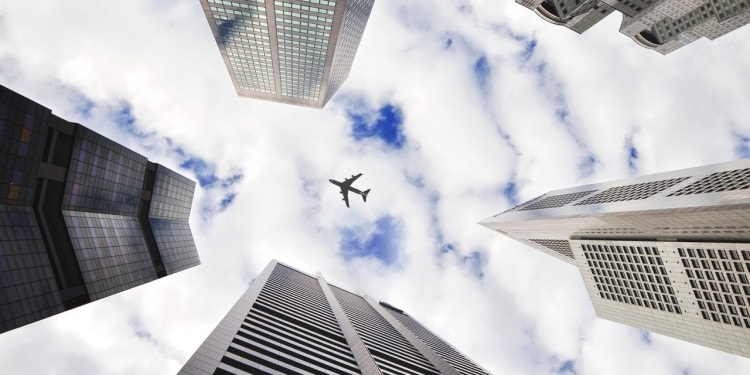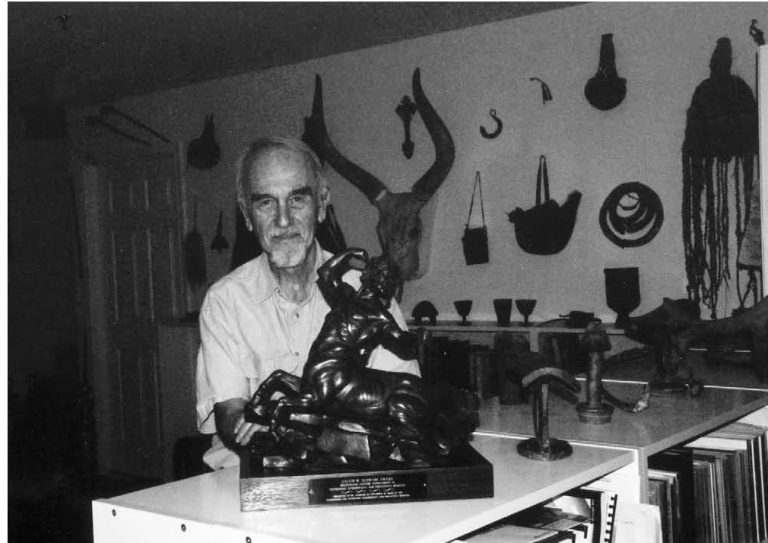Globalized, interconnected, technological – these are just a few examples of the terms used on a daily basis to describe the evolving progress of our world. The more economies are market-oriented, open and liberal, the more the entire country as a whole is applauded as being “modern.” But in light of environmental issues, human rights abuses, raging wars and continued prejudice, is the concept of modernity that we have ingrained in our minds the most conducive to the wellbeing of mankind?
Where Did Our Notions of Modernity Come From?
One of the most significant events in human history which lasted for centuries and still has an incredible impact on our lives is colonialism. Its first waves came in the 15th century, and it lasted until after the end of World War II. While it was a great triumph for the European world, the conquered lands and their people suffer the long-term consequences to this day; many of the consequences have woven their way into the fabric of the world order.
Colonialism grew from the roots of greed, wealth and exploitation, all of which were exported to the places and people it spread to. Europeans started venturing out into the world to acquire more land and resources, to accumulate more affluence. While in the past, other empires such as the Ottomans, Romans and Mongols had taken similar actions, the extent of the exploitation and imposition of the European culture and mind–set on alien peoples is incomparable. The focus on industrialization and resource extraction went back to the core of capitalist values, which were naturally beginning to influence the indigenous peoples of the conquered lands.
Confirmation Biases
In places such as India and Africa, the native cultures and religions were more transcendent, spiritual and inclusive, and therefore were not as inclined towards capitalist values. Their culture is one of several potentially prominent reasons that these groups did not expand at a large scale into surrounding regions. It was not because these people were inherently weaker that the Europeans, but rather because the lack of importance they gave to domination; as a result these people did not create the means to expand such as guns and machinery, and were therefore easily conquered.
 PHOTO CREDIT: StockSnap/JOAO STILES
PHOTO CREDIT: StockSnap/JOAO STILES
At that time, in abstract terms, the Europeans were seen as strong and successful, while the natives were seen as weak and backward. The British, French, Dutch, Spanish and other colonizers benefited immensely and became richer off their expeditions and conquers in the Eastern world. Therefore success was paralleled to the mighty ways of the Europeans; through industrialization, resource extraction, and exploitation of cheap labor.
Related articles: “ARE YOU A PAWN IN THE CAPITALIST MARKET?“
“SDG 1: THE GOAL TO SPARE FUTURE GENERATIONS FROM THE SCOURGE OF POVERTY“
The colonial experience seemed to establish that falling behind meant being beaten by those who got ahead. Europe had gotten ahead by developing weapons, and through steam power that processed fuel for ships and the manufacture of products for consumption and trade. That lesson has resonated to this day; that rapid industrialization and utilization of natural and human resources will ensure that one will not fall behind. And that has become the backbone of our meaning of modernity.
Are Modernizing Countries Really Modern?
Countries such as China and India are seen as models of embracing modernity today, as nations who have successfully followed the Western economies and could soon be world giants. In terms of the colonial-influenced ideal of modernity, they are modern. China is the world’s largest exporter of goods; it massively industrialized in its communist era, and continues to do so. It has tens of thousands of factories that manufacture nearly any good in the world. Likewise, India has taken the more human resources route, taking advantage of the millions of people who are willing to provide cheap labor and entering at a colossal scale into the technological industry. However, have these countries truly modernized?
China is blamed for having some of the worst human rights records in the world, not to mention its alarming environmental pollution that is beginning to have a disastrous effect on natural and human health. India has some of the most abject poverty known to mankind, as well as a record of terrible discrimination and violence towards women. Those are not qualities which would instinctively deem a nation as “modern”, yet China and India are applauded for their progress. And this brings in the other residue of the colonial experiment; all motives and actions were based on economic rewards.
Colonialism revolved around the desire to increase wealth, thus the need to gain land and resources to create more goods and generate more profits. This need still exists more than ever today; our entire species seems to be bent on fortune and consumerism. In this neo-colonial concept of modernity, yes China and India are progressing in leaps and bounds. But is that all modernity really is, economic progress? Or is it a more holistic ideal that includes many aspects of existence such as humanitarianism, ideology, values? If that is the case, then many countries may be lagging in categories aside from economics.
 PHOTO CREDIT: unsplash.com
PHOTO CREDIT: unsplash.com
Is This A One-Size-Fits-All Situation?
However, many economic scholars would argue that it is through economic transformation that other forms of modernity emerge. This is the very argument of the Modernization Theory that emerged in the mid-20th century. When a country has modernized economically and has accumulated enough wealth, new systems will be put in place that will accommodate cultural and social changes as well. However, are all peoples and belief systems around the world able to accommodate rapid economic reconstruction? Is everyone willing to let economic motives take over their lives? Is this brand of modernity a “one-size-fits-all” model?
There are many cultures, such as those influenced by Buddhism and Taoism that explicitly do not choose to put much emphasis on wealth and possessions, and therefore for them economic development would perhaps not be synonymous with modernity. For them, modernity may have more to do with advances in their strong belief in transcendence and spirituality.
For a full mindmap containing additional related articles and photos, visit #globalization
It is very difficult to try to give concrete meaning and characteristics to an idea as abstract as modernity. In our present neo-colonial world, the idea that economic advances equate to modernity has been ingrained into our minds, and as a result all of the man-made systems we have put into place, from education to trade to communication all revolve around trying to gain more wealth, power and influence. Societies that follow this path are seen as forward-looking, while those who do not choose to associate themselves with this model are deemed regressive.
But again, can something as abstract as modernity have only one model that must fit into every society? Are we forgetting social and cultural differences that define the morals and values of peoples? This neo-colonial model may have worked for Western societies, but can we really expect it to be applied to all other religions, cultural, societies who have very different ideals and beliefs? Wealth is not the sole path to fulfilment and happiness in many societies the way it seems to have become in others.
Looking At Reality
Where has our Western neo-colonial concept of modernity gotten us? To the very words at the beginning of the essay: globalization, interconnectedness, technological advances. We cannot deny that these are astounding accomplishments. Never before in the history of the world could we communicate, travel, do business with individuals all over the planet with the ease and spontaneity we do now. The entire world is open to us, everything everywhere has to offer.
 IN THE PHOTO: THE WONDERS OF TECHNOLOGICAL ADVANCEMENT, PHOTO CREDIT: unsplash.com/SAI KIRAN ANAGANI
IN THE PHOTO: THE WONDERS OF TECHNOLOGICAL ADVANCEMENT, PHOTO CREDIT: unsplash.com/SAI KIRAN ANAGANI
But, the hunger for economic prosperity has also brought on many of the deep problems that we are struggling with. Greed has led the West to prop up tyrannous governments and instigate conflicts in order to gain control over areas rich with natural resources. The colonists did this overtly, and Western powers, while condemning imperialism take the same actions covertly. Even without the imposition of Western powers, poor countries are rife with civil war because of unbearable economic inequalities, the few rich elite and the poor angry masses.
Greed and consumerism has also created a problem that seems more and more unsolvable by the day; environmental degradation. Fossil fuel extraction and burning, the ravage cutting of forests upon forests, oil spills in the oceans and the slaughtering of animals is all a result of us constantly wanting more, constantly wanting to industrialize and get ahead. Nothing is ever enough; there is always more money to be made, more wealth to be had.
While these values may have worked out before, they are not at all sustainable in the state we are today. Our world today is stricken with conflict, poverty, suffering, unsustainable environments, overpopulation, terrorism, discrimination, inequality to name a few. All of these problems find some root in greed and our never-ending desire for more.
Time To Change Our Ways?
Maybe it is time to turn to those principles that teach us more than that. In a world that has seemed to toss aside religion, maybe it is important to go back to some of the core values it tries to teach; gratitude, helping the poor, restraint, concepts of justice, being answerable to someone. We should pay more heed to cultures that have integrated sustainability and equality into their practices. We need to redefine our concept of modernity to be more applicable to everyone and the circumstances we are living in. The colonial concept of progress has gotten us thus far, and we cannot forget that it has brought us great triumphs. But no system can be dominant forever. As we witness more and more turmoil unfolding before our eyes, we should take this as a warning that we must change our ways before it is too late.
Recommended reading: “HOW THE WORLD WORKS“
—














